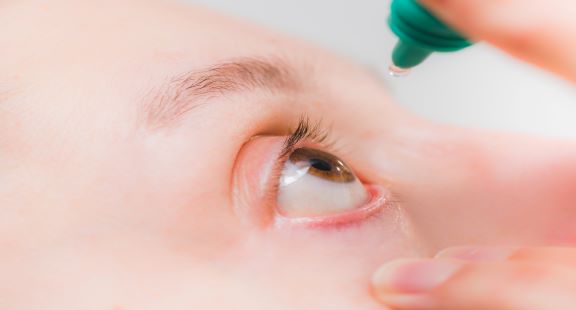
Introduction
Cannabidiol (CBD) oil side effects reported so far include dry mouth, fatigue, changes in appetite, and nausea. But does CBD oil cause kidney side effects? Let’s review this post.
To accurately understand the seriousness of the situation, let’s start with some facts about kidney disease.
- 10% of people around the world are affected by chronic kidney disease (CKD). And the number of deaths is increasing every year due to lack of access to affordable treatment.
- CKD was ranked 18th in the 2010 Global Burden of Disease study.
- CKD is becoming a global health problem
- The WHO reports that kidney disease increases the risk of five other complications including diabetes, hypertension, cardiovascular disease, HIV, and malaria.
These alarming data indicate the urgent need to spread awareness and primary information about chronic kidney disease among susceptible populations, which could help avoid delays in diagnosis and treatment.
What is chronic kidney disease? (ERC)
Let’s quickly recall the vital functions that the kidneys perform.
- The kidneys are responsible for the production of various hormones including vitamin D, erythropoietin (EPO), calcitriol, and renin.
- Regulate the flow of body fluids, water, minerals, electrolytes, chemicals, etc.
- Elimination and excretion of excess fluids, toxins and waste products.
When the kidneys are no longer able to carry out these functions, they create lasting damage over time that results in chronic kidney disease. (ERC)
If this damage is irreversible, they stop working and lead to kidney failure, also called end-stage kidney disease (ESRD). In this phase, dialysis or kidney transplantation are the only options to help affected patients stay alive.
It is equally important to note that CKD has other associated health conditions that affect the blood vessels, heart, nerves, and bones.
Common causes of kidney disease
Diabetes and high blood pressure are the main causes of kidney failure.
Some of the other causes that lead to kidney failure are:
- Glomerulonephritis (GN): Glomeruli are small, loop-shaped groups of blood vessels that filter blood sent to the kidneys. Damage or inflammation of the glomeruli causes a leakage of proteins and red blood cells through the urine. The excretion process of the kidneys is also obstructed in this situation. Therefore, waste begins to accumulate in the blood, leading to kidney failure. Infections, toxic drugs, diabetic nephropathy, or lupus are possible causes that lead to this situation.
- IgA nephropathy is another form of glomerular disease.
- Systemic sclerosis is a disease that arises due to the overproduction of proteins and collagen in various tissues.
- Genetic reasons that cause polycystic kidney disease.
- Severe urinary tract infection.
- Enlarged prostate.
- Hypertension
- Goodpasture syndrome is a rare autoimmune disease that affects the lungs and kidneys.
- Nephrotic syndrome is another cause that leads to kidney disease. In this condition, the protein content becomes very high in the urine but very low in the blood, accompanied by other complications such as high cholesterol, swelling of the feet, hands, etc. Although it is not a disease in itself, it can occur along with other conditions.
- Infection, liver damage or elevated liver enzymes, low blood pressure, bladder obstruction, injury or long-term illness, and hospitalization could cause sudden kidney failure leading to acute kidney injury (AKI)
- Other generic causes are old age, family history, heart disease, ethnicity, etc.
CBD oil side effects and kidney disease symptoms. An analogy
General symptoms of kidney disease
- External itching, kidney itching or rash, uremic itching (chronic itching accompanied by pain)
- Muscle spasms
- Nausea and vomiting
- Loss of appetite
- Swelling
- Disturbed sleep
- Short of breath
- Frequent urge to urinate
- Back pain
- Diarrhea
- Sexual dysfunction is common in CKD and ERS
Now let’s look at some of the side effects of Cannabidiol (CBD)
- A 2011 study 1 notes that some studies report that CBD can induce side effects such as blocking the liver to metabolize drugs, decreased fertilization capacity, decreased liver metabolism of drugs, decreased activities drug transport mechanism and decreased cell viability.
- References from a 2019 study 2 report excessive sleepiness, sedation and lethargy, fatigue, decreased appetite, diarrhea, vomiting, and abdominal pain.
We see similarities between the side effects of CBD and the symptoms of kidney disease. That leads us to investigate further. Let’s discuss.
Some data from the same 2019 study 3 are:
- Since the intraperitoneal (IP) and intravenous (IV) routes provide greater bioavailability, they increase the adverse effects and toxicity of CBD. However, the occurrence of these situations is likely in patients receiving treatment for epilepsy and psychiatric disorders.
- Further research is needed on the downstream effects of chronic CBD administration on hormones, enzymes, interactions with other drugs, drug transporters, and DNA toxicity.
- Excessive drowsiness and sedative effects of CBD are dose dependent. In most cases, they occur when administered together with other antiepileptic drugs, central nervous system (CNS) depressants, and alcohol.
- The wide range of doses and self-medication also play a role in the adverse side effects of CBD. The study also points to the variability of CBD products available in the form of tablets, capsules, sprays, e-liquids, and oils as a risk that adds to their adverse effects.
A recent study 4 indicates that currently available cannabis-related research is biased towards recreational cannabis.
Along the same lines, synthetic cannabinoids (developed for research purposes) are becoming dangerous recreational drugs. Also, synthetic cannabinoids are not detected in standard blood and urine tests. Therefore, they could mislead nephrologists treating patients with AKI.
Cannabinoid hyperemesis syndrome (CHS) is occasionally associated with prerenal AKI.
Other conclusions from this study:
- CBD can increase tacrolimus levels. But a small case study showed that a low dose of CBD given for chronic pain in kidney transplant patients did not change tacrolimus levels.
(The Tacrolimus or CT test is done to assess the amount of the drug in the blood to make sure it has reached a therapeutic level and is below the toxic level.
2017 Study Reference 5 : CT is an immunosuppressant and is used in heart, liver, kidney, or pancreas transplant patients.
Additionally, another study (Jouve T, Noble J, Rostaing L, Malvezzi P. Tailoring tacrolimus therapy in kidney transplantation. Expert Rev Clin Pharmacol. 2018 Jun; 11 (6): 581-588. Doi: 10.1080 / 17512433.2018.1479638. Epub 2018 May 25. PMID: 29779413.)) reports the importance of CT in immunosuppressive therapy in kidney transplantation. At the same time, it also points to the increased risk of post-transplant diabetes.
- THC and CBD can interact with the metabolism of prescription drugs.
- With a 200 mg dose of oral CBD, the peak plasma concentration did not show any change.
- High doses of CBD could increase liver enzymes.
- So far there is no evidence to suggest that CBD has any adverse effect on kidney function.
- If patients with chronic kidney failure use cannabis, they should use the lowest dose and avoid the smoking route to avoid pulmonary complications.
Possible Effects Of CBD On The Kidneys: What Does The Research Say?
- The 2017 study 6 points to the presence of CB1 and CB2 receptors found in the kidneys and could be activated by the ingredients in cannabis. But taking into account the type of kidney disease and the state of the injury, experimental studies show that its effects on the kidneys could be both harmful and beneficial.
- Contrary to the above, a 2019 study 7 reports that although CB1 and CB2 are expressed in the kidneys, the effects of the endocannabinoid system (ECS) in the kidneys are not well understood.
- But the study indicates that preliminary research on synthetic cannabinoids used topically in uremic pruritus in end-stage kidney disease is promising.
- Regarding the symptoms of kidney diseases, neuropathic pain is very relevant in patients with CKD. However, the study concludes that the role of cannabis in treating CKD symptoms is limited. It’s worth remembering here, the post CBD for back pain highlights the role of topical application of CBD, and its potential to block nociceptive and neuropathic pain.
- However, 8 the 2020 study reports that patients with progressive CKD may be more likely to use medical cannabis for symptom management. He also adds that the National Academies concluded the existence of valuable evidence for the use of cannabis and cannabinoids to treat chronic pain.
Kidney disease and COVID 19
As the world continues to fight the new coronavirus, research on it is advancing rapidly. The scale of the epidemic has shaken medical researchers around the world.
In this scenario, a new report reveals that people hospitalized for COVID-19 treatment are at increased risk of developing acute kidney injury (AKI). Kidney tubular injury, increased blood clotting, and kidney infections are some of the sequelae of COVID-19, the report adds. Additionally, patients who have recovered from COVID-19-related AKI continue to show decreased kidney function.
Therefore, the study recommends these patients to attend regular consultations with kidney specialists.
What are the simple lab tests to detect kidney function?
Kidney diseases are common and painful, but can be treated with early diagnosis. Simple urine and blood tests can help us check kidney function.
- A urinalysis called the albumin creatinine ratio (RAC test) detects the presence of the protein albumin in the urine. An excess of proteins would indicate a CKD and would also indicate the risk of heart attack.
- A blood test checks your glomerular filtration rate (GFR) and blood sugar level (diabetes is one of the main causes of CKD). Glomerular filtration rate (GFR) tells you how well your kidneys are working and how fast your body removes waste. In healthy conditions, the kidneys should filter 100 ml / min. If it falls below 60 ml / min, see a nephrologist immediately.
Main aspects to consider
- High blood pressure (hypertension) and diabetes are the most common causes of kidney disease. Some simple lifestyle practices could prevent the incidence of the disease. For example, exercising regularly, controlling weight, meditating, avoiding alcohol and tobacco, reducing salt intake, eating a healthy diet, etc.
- Kidney diseases are silent and progress without showing any symptoms. Therefore, early detection can help prompt treatment. Regular urine and blood tests can help prevent the risk of developing chronic kidney disease and other associated complications.
- Cannabidiol (CBD), the non-psychoactive compound extracted from hemp plants, has immense health benefits and has become part of the routine for many people. In parallel, clinical evidence is also growing in support of CBD for its potential in the management of various conditions including epilepsy, pain management, depression, anxiety, etc. Although many studies report on its safety profile, the physiological effects of cannabis and cannabinoids on the kidney need further investigation.
- There are knowledge gaps on the conclusion of the positive or negative effects of CBD on the kidneys. These are: the trials conducted so far are with a small number of patients with kidney disease, the limited research on the topic of chronic CBD administration, the effect of CBD on immune function, hormones and genotoxicity.
- Besides prescription medication, alternative treatments to control CKD symptoms are limited. Therefore, there is a great demand for CBD products. There is a need to guide and educate patients and healthcare professionals on the use and side effects of CBD in kidney disease.
- Study 9 underscores that consumers need to be more informed when using CBD products, as markets remain unregulated.
- Making sure to buy high-quality CBD products, checking the proper labels, and third-party lab results are practices that customers could follow. At the same time, patients with chronic kidney disease or acute kidney injury who self-administer CBD products should be vigilant about drug interactions and consult with their nephrologists.
References
- Bergamaschi MM, Queiroz RH, Zuardi AW, Crippa JA. Safety and side effects of cannabidiol, a component of Cannabis sativa. Curr Drug Saf. 2011 Sep 1; 6 (4): 237-49. doi: 10.2174 / 157488611798280924. PMID: 22129319 [ ]
- Huestis MA, Solimini R, Pichini S, Pacifici R, Carlier J, Busardò FP. Adverse effects and toxicity of cannabidiol. Curr Neuropharmacol . 2019; 17 (10): 974-989.doi: 10.2174 / 1570159X17666190603171901 [
]
- Huestis MA, Solimini R, Pichini S, Pacifici R, Carlier J, Busardò FP. Adverse effects and toxicity of cannabidiol. Curr Neuropharmacol . 2019; 17 (10): 974-989. doi: 10.2174 / 1570159X17666190603171901 [
]
- Rein JL. The nephrologist’s guide to cannabis and cannabinoids. Curr Opin Nephrol Hypertens. 2020; 29 (2): 248-257. doi: 10.1097 / MNH.0000000000000590 [
]
- Yuan D, Fang Z, Sun F, et al. Effect of Vitamin D and Tacrolimus Combination Therapy on IgA Nephropathy. Med Sci Monit . 2017; 23: 3170-3177. Posted Jun 29, 2017. doi: 10.12659 / msm.905073 [
]
- Park F, Potukuchi PK, Moradi H, Kovesdy CP. Cannabinoids and the kidney: effects on health and disease. Am J Physiol Renal Physiol. 2017 Nov 1; 313 (5): F1124-F1132. doi: 10.1152 / ajprenal.00290.2017. Epub 2017 Jul 26. PMID: 28747360; PMCID: PMC5792153. [
]
- Ho C, Martinusen D, Lo C. A Review of Cannabis in Chronic Kidney Disease Symptom Management. Can J Kidney Health Dis. 2019; 6: 2054358119828391. Posted on February 22, 2019. doi: 10.1177 / 2054358119828391 [
]
- Rein JL. The nephrologist’s guide to cannabis and cannabinoids. Curr Opin Nephrol Hypertens . 2020; 29 (2): 248-257. doi: 10.1097 / MNH.0000000000000590 [
]
- Rein JL. The nephrologist’s guide to cannabis and cannabinoids. Curr Opin Nephrol Hypertens . 2020; 29 (2): 248-257. doi: 10.1097 / MNH.0000000000000590 [
]
Connect with other CBD users on Facebook
Do you want to benefit from the experience of other CBD users? Have questions about CBD? There is an active CBD group on Facebook.









